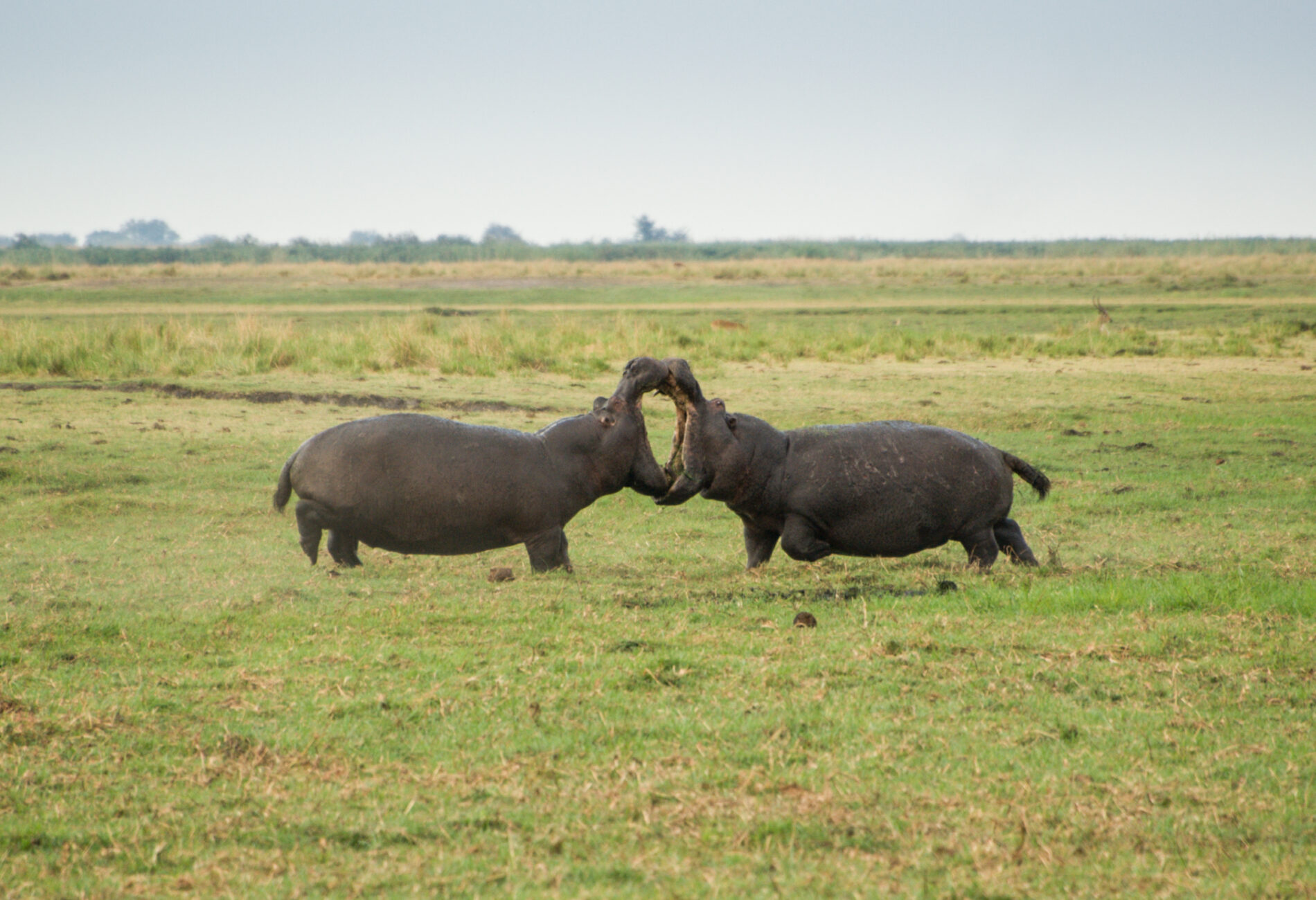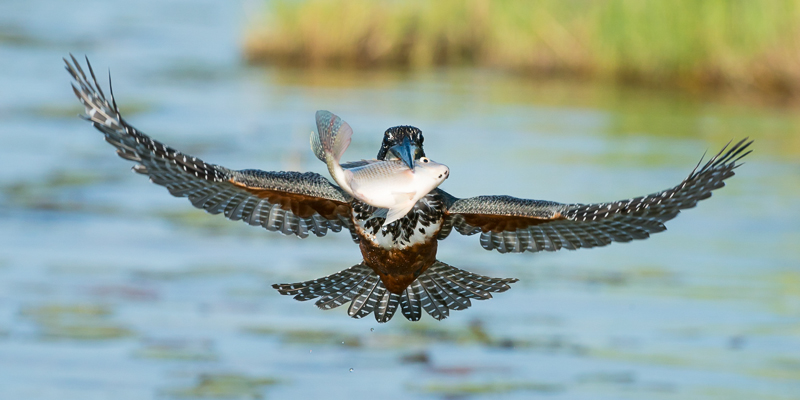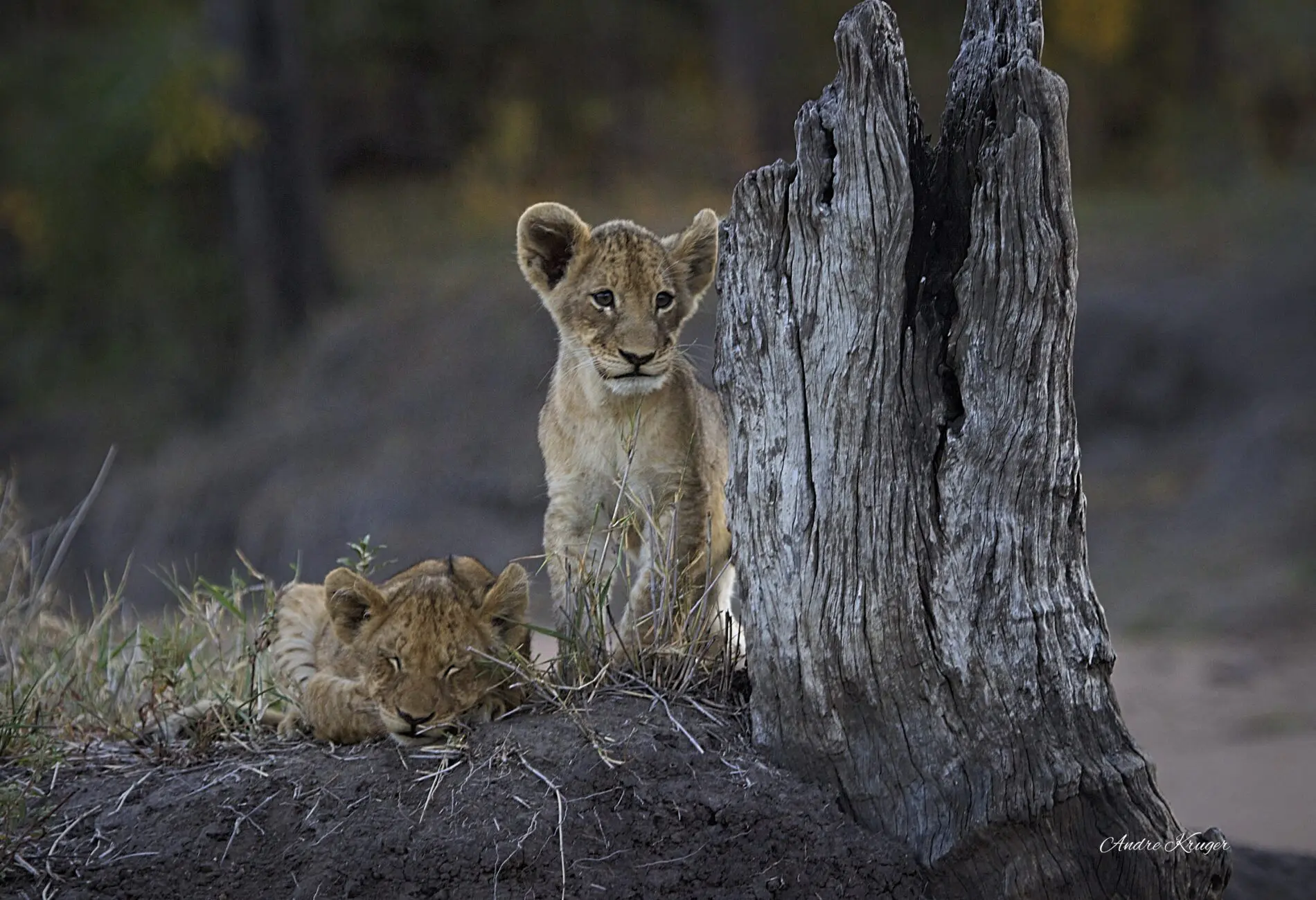An extraordinary bucket list experience, the magnificent Chobe River will captivate you with its beauty as you glide down the magnificent river with its networks of shimmering floodplains, thick bush and open woodlands, animals congregating at the water’s edge, while enjoying the serenity of the natural sounds all around.
But when to visit? Luckily for you, the Chobe is truly a year-round destination with something special on offer in every season. But if you’re after a particular experience, read on to discover why to visit in each season.
Fishing season (April to November)
Cast your line, and hook a big one while staying at our spectacular, Ichingo Chobe River Lodge, nestled on Impalila Island in Namibia. It’s a favourite with fishing groups and families for good reason.
In addition to the infamous tiger fish, another exciting catch to make on the Chobe is the enormous catfish or barbel. The African pike, carp and Zambezi yellow fish are also worth looking out for. All tiger fishing done with the Zambezi Queen Collection is strictly on a catch and release basis only.
“During the annual floods in the beginning of the year, the floodplains are saturated upriver, resulting in the river replenishing its fish stocks with fingerlings,” says Kate Powell, General Manager, Sales & Marketing for the Zambezi Queen Collection, that offers unique river safaris on the Chobe River. “The tiger fish take full advantage of the extra food which can create incredible tiger frenzies during the winter months.”

Prolific game watching (April to October)
Game viewing on the Chobe River is at its most prolific from April to October when the weather is drier and the animals are more mobile as they search for food and water.
Our unique water-based safaris allow you to get up close and personal with huge herds of elephant plus buffalo, lion, crocodile, zebra and more that are drawn to the water.

Birding season (from September to March)
Birding season starts in September when the summer migrants arrive and coincides with the green season.
The Chobe River region is a veritable Garden of Eden for birdwatchers, allowing you to tick off tons of new and old favourites from the 450+ diverse species of bird. Keep your binoculars at the ready!
Hop on board a tender boat for a guided birding safari. This will mean many hours spotting birds such as African skimmers, rock pratincoles and the African finfoot as well as cattle egrets, fish eagles, open-billed storks, lesser-striped swallows, pied kingfishers and the striking carmine bee-eater.
Read related content: Top ten birds to spot in the Chobe | Top 5 Zambian Safari spots by Africa’s Eden

The green season (November to March)
Visitors are often under the assumption that if they visit outside of the peak season, they won’t see any game. Nothing could be further from the truth – especially not when you’re situated on the Chobe River surrounded by nothing but wildlife.
Just one of the many reasons why a river safari is so special is that the animals will always come down to the river to drink – right in front of your eyes.
Green season runs from November until March and follows after the traditional peak season, or dry season, when many visitors want to come on safari to view the magnificent wildlife. After months of this dry weather, the heavens open and the first rains arrive. The green season heralds abundant greenery and new life, with many young birthed in this season, coinciding with spring.
Read related content: Why you should travel during the green season

Why you should book early
If you want to be the early bird and get the best of any season, we’d always recommend booking early.
Not only do we offer many specials ahead of time, but you’re also guaranteed your first choice of available dates, cabins, flight routings and more.
Generally, our lead time is as per below:
- The Zambezi Queen: often booked 8 to 12 months ahead
- The Chobe Princesses: booked 6 months out
- Ichingo Chobe River Lodge: Most often booked 3 months ahead of time.
Browse our special offers and contact us today to visit us in your chosen season.
